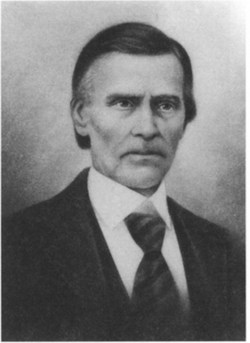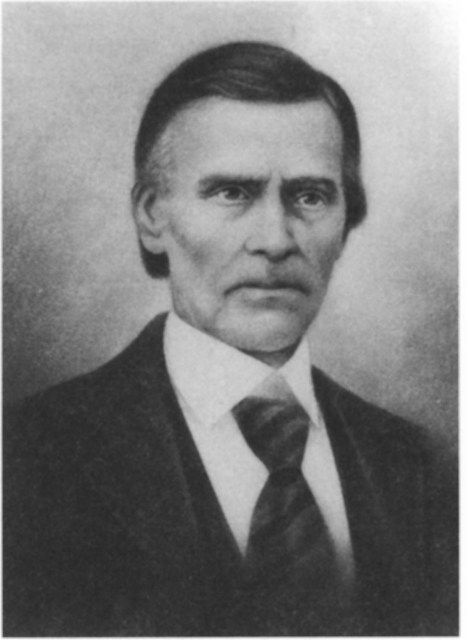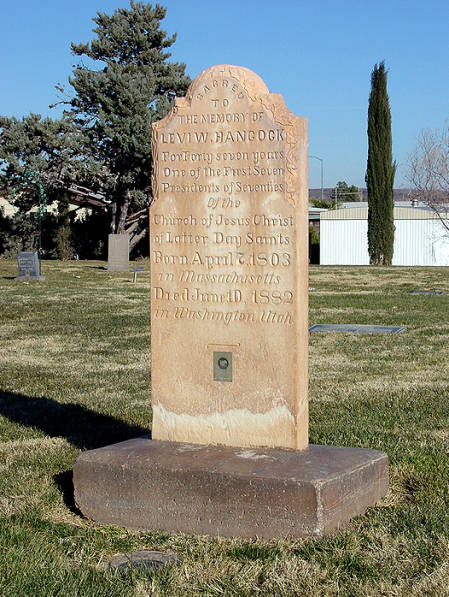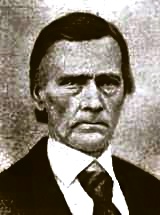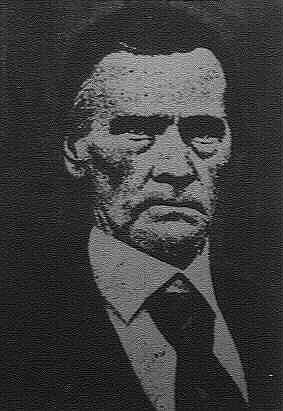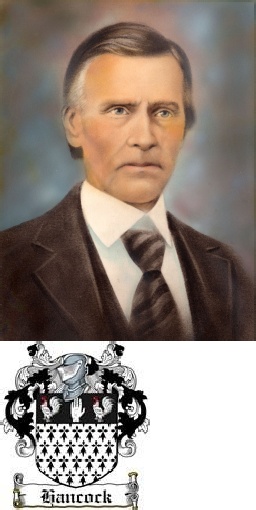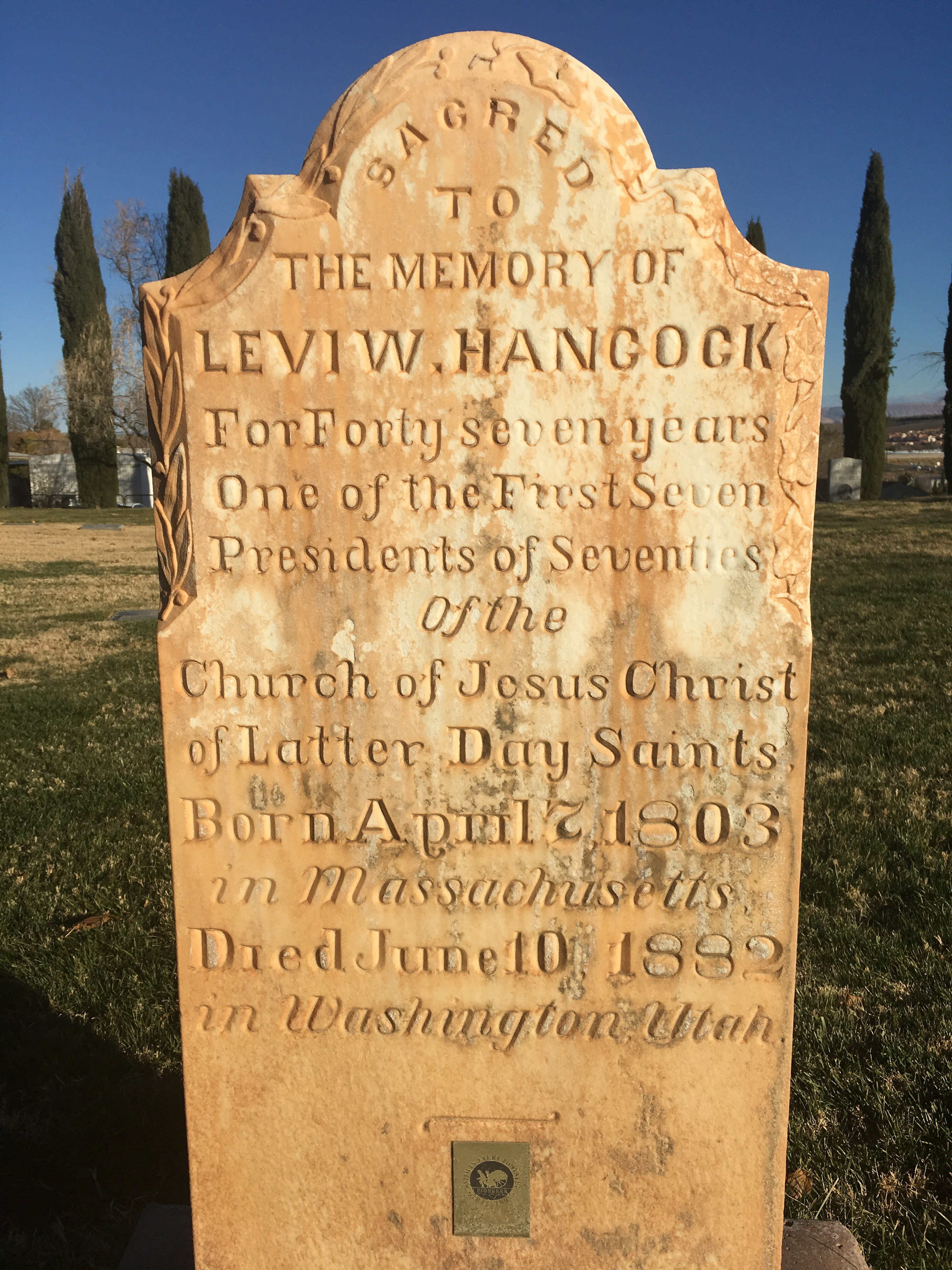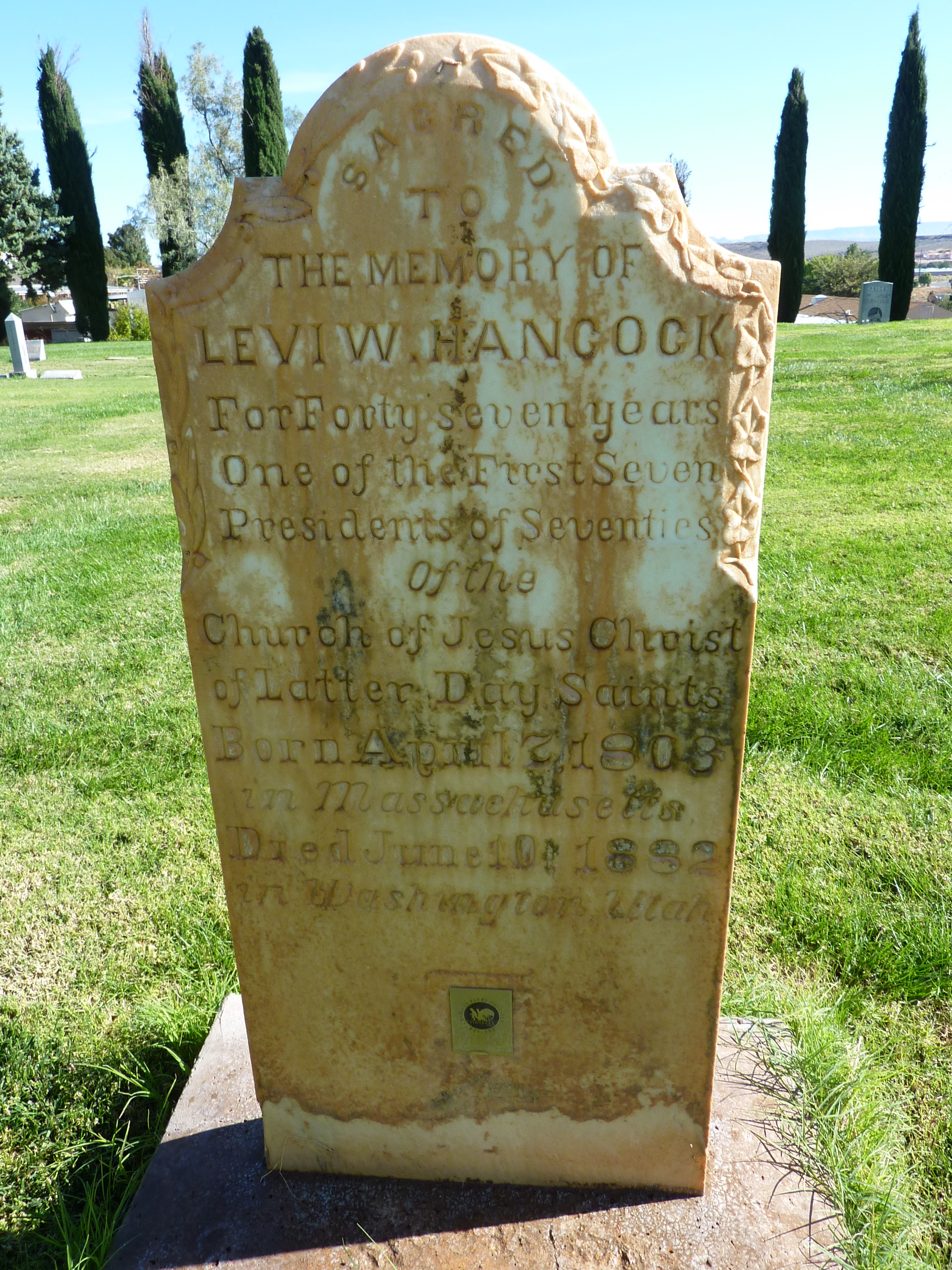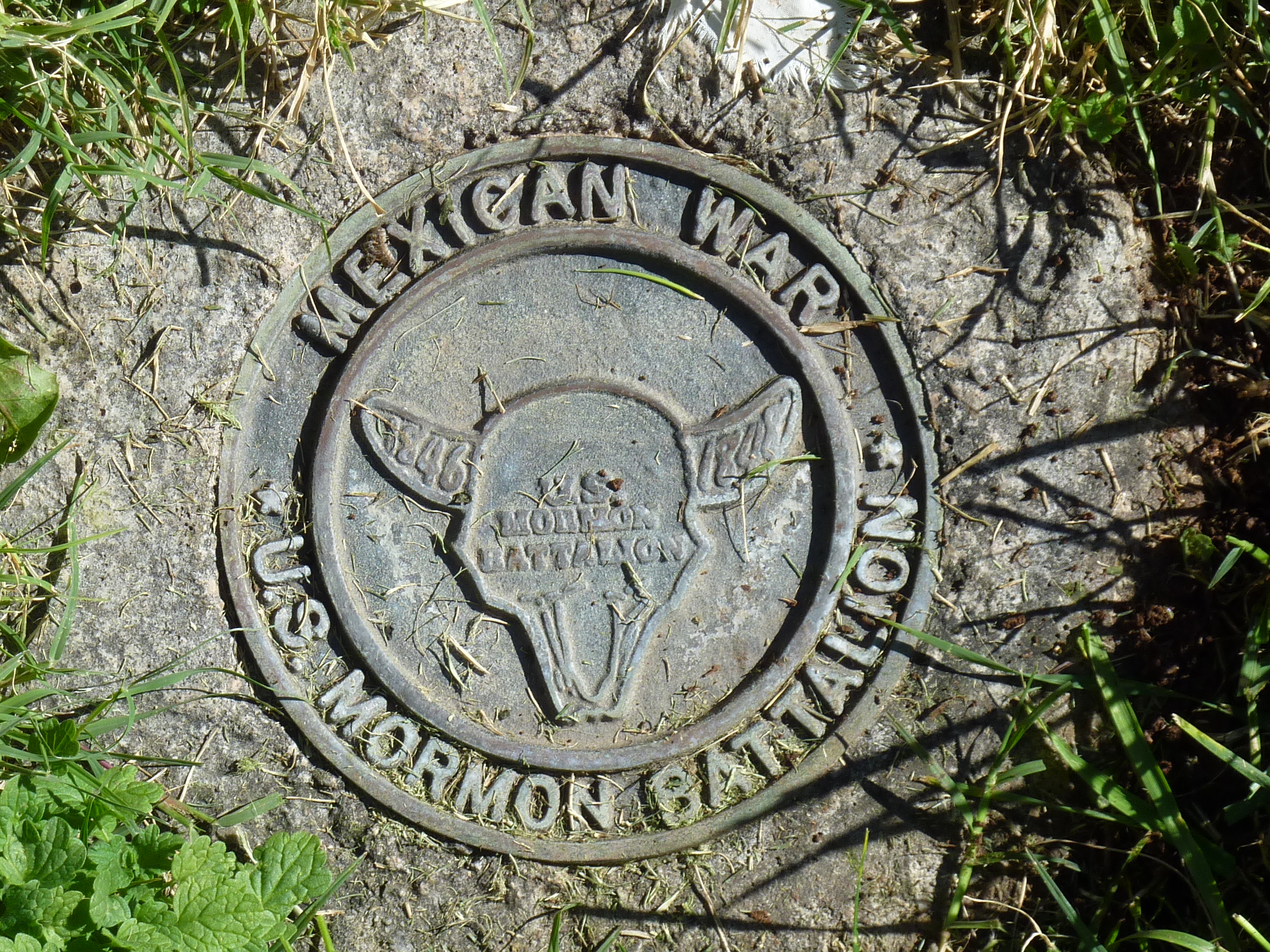Married Clarissa Reed, 29 Mar 1833, Kirtland, Lake, Ohio. Divorced 1854
Married Emily Melissa Richey, 24 Feb 1849, Salt Lake City, Utah
Married Elizabeth Woodville Hovey, 19 Feb 1856. Divorced 1857
Married Anna Tew, 19 Jul 1857, Salt Lake City, Utah
Married Mary Ann Mogensen, 9 Aug 1868
Latter-day Saint Biographical Encyclopedia
Volume 1 Biographies
By Leonard Rich
Hancock, Levi Ward, one of the First Seven Presidents of Seventies from 1835 to 1882, was the youngest son and seventh child of Thomas Hancock and Amy Ward, and was born April 7, 1803, in the town of Old Springfield,Hampden county, Mass. In 1805 his father removed with his family,consisting of his wife, seven children and his widowed mother, to New York State and settled in Bristol, Ontario county. Later, they removed to Chagrin, Cayahoga county, Ohio. As a boy and young man Levi exhibited noble characteristics and industrious habits, and was able to render his father efficient help from his early youth. His education was limited, as he was raised on the frontier; and through force of circumstances he was compelled to work for others for a living. He also learned the trade of a cabinet maker. About the year 1827 he purchased some land and built ahouse at Rome, Ashtabula county, Ohio, where he lived, though yetunmarried, when Parley P Pratt and fellow missionaries passed throughthat part of the country on their journey to the west. They held meetingsat Chagrin, where the senior Hancock still lived, and among the firstbaptized at that place were Levi's father and his sister Clarissa. Levifollowed the missionaries to Kirtland, where he was baptized by ElderPratt Nov. 16, 1830, and soon afterwards he was ordained an Elder byOliver Cowdery. He then commenced to preach the gospel successfully in the surrounding country. In June, 1831, he was called by revelation, together with other Elders, to travel to Missouri and preach the gospel "by the way," with Zebedee Coltrin as a traveling companion. They performed successful missionary labors in Ohio, Indiana and Illinois, andafter their arrival in Missouri, Levi participated in the preparatory work done for the building of Zion. After his return to Ohio he became azealous and faithful worker for the cause, and contributed liberallytoward the erection of the Lord's House at Kirtland. In 1834 he marched to Missouri as a member of Zion's Camp, and, having returned to Ohio, was chosen and ordained one of the first Seventies of the Church Feb. 28, 1835, under the hands of Joseph Smith and others; soon afterwards he was chosen one of the First Seven [p.189] Presidents of Seventies, whichposition he occupied with honor and faithfulness for forty-seven years,or until the day of his death. In 1838 he removed to Missouri, where hepassed through the persecutions which the Saints were called upon toendure, and when the Church was expelled from that State in 1838, Bro.Hancock was among those who covenanted to place their means at thedisposal of the committee which had been appointed for the removal of thepoor Saints, to the State of Illinois. After the founding of Nauvoo hebecame a prominent and energetic citizen of that place, where he alsoacted as a police officer. Early in 1844 he was called on a mission toVermont. He had previously filled a mission to Indiana. In common withthe rest of the Saints he suffered persecutions and consequent hardshipsin Illinois and became an exile for conscience sake in 1846. Arriving with the camps of Israel on the Missouri river, he enlisted in the famous Mormon Battalion and marched with that military body to California, being the only man of the general authorities Of the Church who thus enlisted. On the long and tedious march his wise counsel and exemplary course didmuch to mould the character of the soldiers. He acted as chaplain of the Battalion. As an illustration of his susceptibility to the spirit ofinspiration the following is related: A non-Mormon by the consent of the Battalion joined the company and soon after required baptism. Brother Hancock, in company with others of the brethren, took him down to theMissouri river and performed the ceremony. On raising him from the water he said, as if wrought upon by the spirit, "If I have baptized a murderer, it will do him no good." His words had such an effect upon the stranger that he soon afterwards confessed that he was a murderer, having killed his own brother. As many of the men of the Battalion were members of the Seventies' quorums, Seventies' meetings were held occasionally in the camp, when circumstances would permit, under the presidency of Bro.Hancock, who did his best to influence the men to live as their religion taught under every circumstance. On account of his zeal in this regard,some of the officers wrongfully accused him of being officious. After the discharge of the Battalion in California, in 1847, Bro. Hancock marched to Great Salt Lake valley with the main body of the soldiers, arriving there in October. From that time until his demise he labored assiduously for the upbuilding of the kingdom of God and for making the wilderness afit place for the habitation of man. He traveled extensively throughout the Territory in the interest of the Seventies and the Church generally. He was also one of the Pioneer settlers of Manti, Sanpete county, from whence he was sent thrice as a representative to the Utah legislature. Subsequently he moved to Payson, Utah county, and still later located in Salt Lake City. About 1866 he removed to southern Utah and settled in Harrisburg; afterwards he became a resident of Leeds, and still later of Washington. About ten years before his death he was ordained a Patriarch in which capacity he blessed thousands of the Saints. He died at his home in Washington, Washington county, Utah, June 10, 1882. Elder Hancock wasa sparsely built man, quick and active. He was a natural minute man and a good musician.
Levi Ward Hancock was an important early leader of the Mormon Church.
Married Clarissa Reed, 29 Mar 1833, Kirtland, Lake, Ohio. Divorced 1854
Married Emily Melissa Richey, 24 Feb 1849, Salt Lake City, Utah
Married Elizabeth Woodville Hovey, 19 Feb 1856. Divorced 1857
Married Anna Tew, 19 Jul 1857, Salt Lake City, Utah
Married Mary Ann Mogensen, 9 Aug 1868
Latter-day Saint Biographical Encyclopedia
Volume 1 Biographies
By Leonard Rich
Hancock, Levi Ward, one of the First Seven Presidents of Seventies from 1835 to 1882, was the youngest son and seventh child of Thomas Hancock and Amy Ward, and was born April 7, 1803, in the town of Old Springfield,Hampden county, Mass. In 1805 his father removed with his family,consisting of his wife, seven children and his widowed mother, to New York State and settled in Bristol, Ontario county. Later, they removed to Chagrin, Cayahoga county, Ohio. As a boy and young man Levi exhibited noble characteristics and industrious habits, and was able to render his father efficient help from his early youth. His education was limited, as he was raised on the frontier; and through force of circumstances he was compelled to work for others for a living. He also learned the trade of a cabinet maker. About the year 1827 he purchased some land and built ahouse at Rome, Ashtabula county, Ohio, where he lived, though yetunmarried, when Parley P Pratt and fellow missionaries passed throughthat part of the country on their journey to the west. They held meetingsat Chagrin, where the senior Hancock still lived, and among the firstbaptized at that place were Levi's father and his sister Clarissa. Levifollowed the missionaries to Kirtland, where he was baptized by ElderPratt Nov. 16, 1830, and soon afterwards he was ordained an Elder byOliver Cowdery. He then commenced to preach the gospel successfully in the surrounding country. In June, 1831, he was called by revelation, together with other Elders, to travel to Missouri and preach the gospel "by the way," with Zebedee Coltrin as a traveling companion. They performed successful missionary labors in Ohio, Indiana and Illinois, andafter their arrival in Missouri, Levi participated in the preparatory work done for the building of Zion. After his return to Ohio he became azealous and faithful worker for the cause, and contributed liberallytoward the erection of the Lord's House at Kirtland. In 1834 he marched to Missouri as a member of Zion's Camp, and, having returned to Ohio, was chosen and ordained one of the first Seventies of the Church Feb. 28, 1835, under the hands of Joseph Smith and others; soon afterwards he was chosen one of the First Seven [p.189] Presidents of Seventies, whichposition he occupied with honor and faithfulness for forty-seven years,or until the day of his death. In 1838 he removed to Missouri, where hepassed through the persecutions which the Saints were called upon toendure, and when the Church was expelled from that State in 1838, Bro.Hancock was among those who covenanted to place their means at thedisposal of the committee which had been appointed for the removal of thepoor Saints, to the State of Illinois. After the founding of Nauvoo hebecame a prominent and energetic citizen of that place, where he alsoacted as a police officer. Early in 1844 he was called on a mission toVermont. He had previously filled a mission to Indiana. In common withthe rest of the Saints he suffered persecutions and consequent hardshipsin Illinois and became an exile for conscience sake in 1846. Arriving with the camps of Israel on the Missouri river, he enlisted in the famous Mormon Battalion and marched with that military body to California, being the only man of the general authorities Of the Church who thus enlisted. On the long and tedious march his wise counsel and exemplary course didmuch to mould the character of the soldiers. He acted as chaplain of the Battalion. As an illustration of his susceptibility to the spirit ofinspiration the following is related: A non-Mormon by the consent of the Battalion joined the company and soon after required baptism. Brother Hancock, in company with others of the brethren, took him down to theMissouri river and performed the ceremony. On raising him from the water he said, as if wrought upon by the spirit, "If I have baptized a murderer, it will do him no good." His words had such an effect upon the stranger that he soon afterwards confessed that he was a murderer, having killed his own brother. As many of the men of the Battalion were members of the Seventies' quorums, Seventies' meetings were held occasionally in the camp, when circumstances would permit, under the presidency of Bro.Hancock, who did his best to influence the men to live as their religion taught under every circumstance. On account of his zeal in this regard,some of the officers wrongfully accused him of being officious. After the discharge of the Battalion in California, in 1847, Bro. Hancock marched to Great Salt Lake valley with the main body of the soldiers, arriving there in October. From that time until his demise he labored assiduously for the upbuilding of the kingdom of God and for making the wilderness afit place for the habitation of man. He traveled extensively throughout the Territory in the interest of the Seventies and the Church generally. He was also one of the Pioneer settlers of Manti, Sanpete county, from whence he was sent thrice as a representative to the Utah legislature. Subsequently he moved to Payson, Utah county, and still later located in Salt Lake City. About 1866 he removed to southern Utah and settled in Harrisburg; afterwards he became a resident of Leeds, and still later of Washington. About ten years before his death he was ordained a Patriarch in which capacity he blessed thousands of the Saints. He died at his home in Washington, Washington county, Utah, June 10, 1882. Elder Hancock wasa sparsely built man, quick and active. He was a natural minute man and a good musician.
Levi Ward Hancock was an important early leader of the Mormon Church.
Family Members
-
![]()
Mosiah Lyman Hancock
1834–1907
-
![]()
Amy Elizabeth Hancock Brown
1836–1862
-
![]()
Francis Marion Hancock
1838–1927
-
![]()
John Reed Hancock
1841–1882
-
![]()
Levi Ward Hancock Jr
1847–1915
-
![]()
Joseph Smith Hancock
1849–1929
-
![]()
Jane Temperance Hancock Player
1852–1940
-
![]()
Levi Ward Hancock Jr
1855–1911
-
![]()
Levison Hancock
1858–1954
-
![]()
Ether Thomas Hancock
1862–1919
-
![]()
Cyrus Hancock
1865–1866
-
![]()
Solomon Marcenia Hancock
1868–1918
